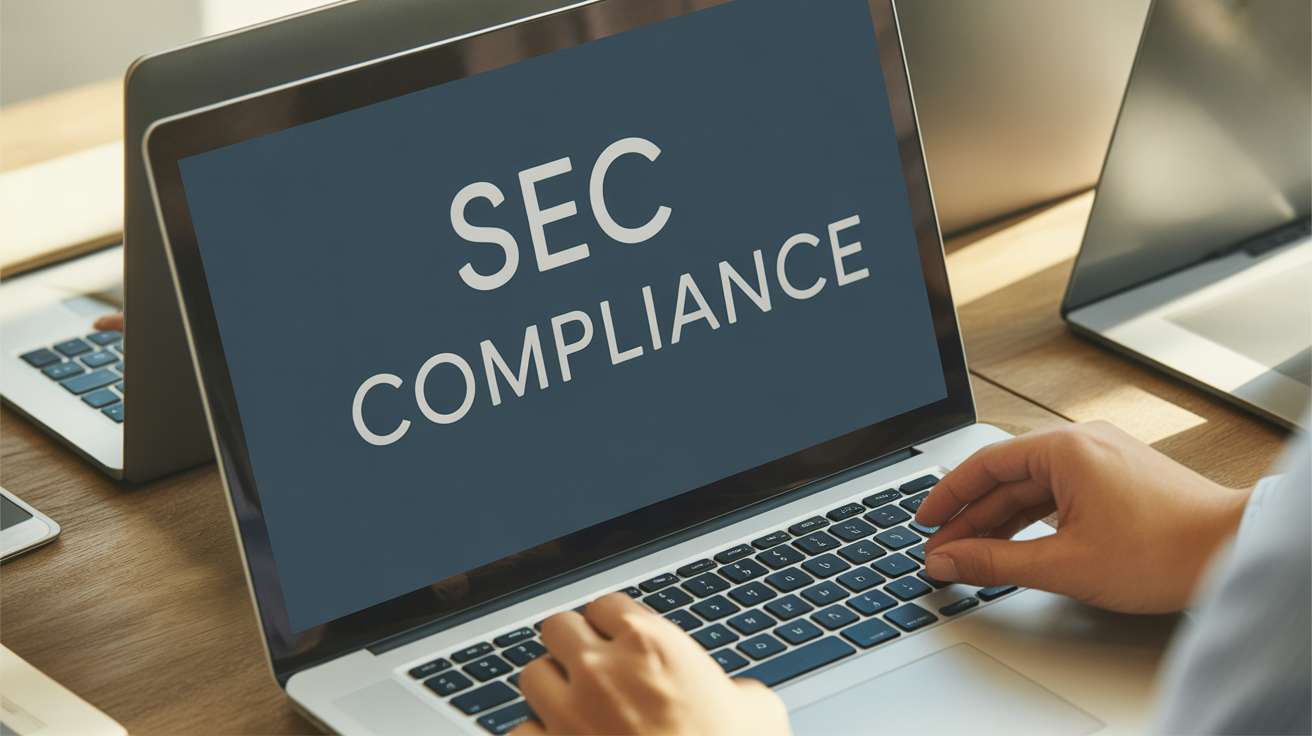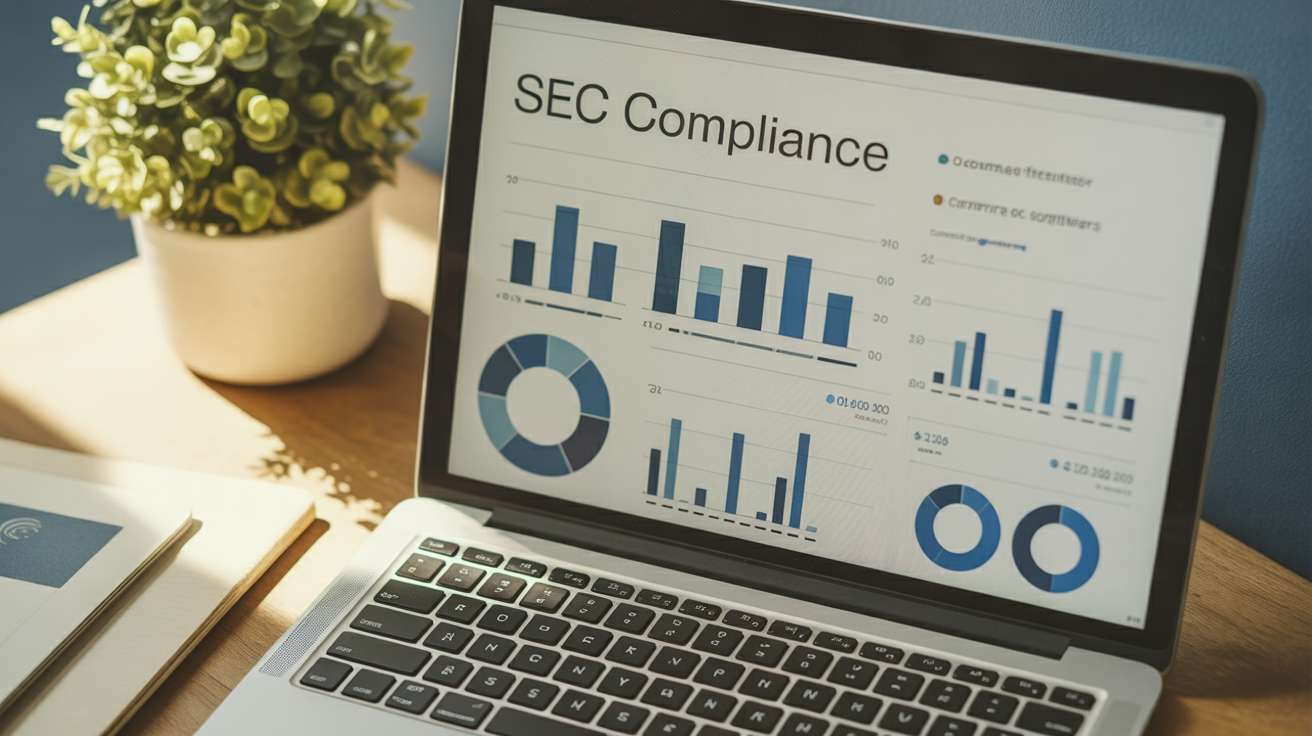Best SEC Compliance Software for RIA and Fintech Reporting
Best SEC Compliance Software to simplify your reporting process, automate filings and reduce manual work

Let's start this off with something you probably didn't need coffee to guess: SEC compliance is not getting any simpler. The RIA industry is flush with cash and clients, and with complex RIA compliance requirements, by 2024, over 15,800 SEC-registered investment advisers are wrangling $144.6 trillion for nearly 70 million clients. That's kind of a lot. And as you may have noticed (or winced about), the SEC has been on a tear issuing rules and running audits. In 2023, they managed nearly 800 enforcement actions and recouped about $5 billion from less-than-compliant firms. Oh, and more than half of wealth management firms said they're throwing more money at technology just to keep up.
What does all that boil down to? Compliance is swallowing more time, budgets, and sleep. This is where the rush for the "best" SEC compliance software gets real, for anyone who'd rather not explain a missing form to an examiner staring silently across the table.
What is SEC Compliance Software?
SEC compliance software isn't just some fancy filing cabinet in the cloud. It's a digital platform built to help RIAs, brokers, and fintechs keep their regulatory ducks in a row. Think of it as mission control: tracking filing calendars, monitoring communications, archiving just about everything, and nudging the right people when something's due. Most of these platforms lay out dashboards showing you what's coming up next, what needs fixing, and (occasionally) what you managed to miss last month.
Why the demand? Because keeping up with the "tsunami of rules" (an actual phrase from a former regulator, not just my flair for drama) has moved past the point of spreadsheets and color-coded sticky notes. Regulators want evidence, not excuses. So, the only sensible measure is to run a system that files, stores, and reminds you about everything.
Importance of SEC Reporting

SEC reporting is not just about paperwork paralysis. Mess up a deadline, forget to store a communication, or miss a new rule, and you could face fines or worse, public notices, client trust nosedives, reviews from angry lawyers. In 2023, those 784 enforcement actions should serve as a friendly reminder that regulators are not too busy to notice a missing disclosure. Almost a quarter of state-registered advisers flubbed a filing or record, which, honestly, doesn't exactly build a lot of confidence in old-school manual compliance.
Every missed form, every slipped deadline, these can trigger sanctions, remedial orders, and new business headaches. So, SEC reporting is not optional, and the quality of your software could make the difference between "well-prepared" and "frantic email at midnight."
Key Features of SEC Reporting Software
Not all compliance software is created equal. Here's what separates the best from the rest (and a bit about why):
- **Compliance Calendars & Alerts: **If you're going to miss a filing, at least let it be because the system broke, not because nobody remembered. The best software keeps a real calendar, pushes reminders, and links each task to the right rule. Missed a Form ADV update? That's on you, not the computer.
- **Document Archiving & Records Management: **SEC Rule 204-2 makes recordkeeping non-negotiable. A solid software archives files in non-editable formats, stores trading and marketing records, and saves you in audits. No more scavenger hunts for a single email after a surprise exam.
- Marketing Compliance Tools: Since the 2022 Marketing Rule hit, advisers had to shape up every ad, testimonial, and social media blast. Modern tools provide automated compliance review to check that you're not accidentally saying something that costs you $850,000 in fines (ask the nine RIAs who learned this the hard way).
- Personal Trade Surveillance: If employees trade personally, this tracks it, checks for conflicts, and keeps things buttoned up for Rule 204A-1. Some even flag trades that seem a bit too well-timed, a handy way to avoid a messy headline.
- Integrated Regulatory Updates: Software must update itself, not just you. The SEC changes a form or invents a new risk, and your software should adjust before you even finish your coffee.
- Audit Trails & Reporting: A full, searchable log. Who did what, when, why. Easy reporting is a lifesaver during exams. (Ask any adviser who's handed off "everything the examiner asks for" without breaking a sweat.)
Top 5 Solutions for SEC Compliance
So, why these five? They stand out on market reputation, features, and the ugly reality of what RIA and fintech staff actually deal with daily. We're talking about automation, AI, flexibility, and depth, not just "pretty interface" points. Each one is best suited to a specific size, business model, or pain tolerance.
1. Luthor AI – AI-Powered Compliance & Outsourced CCO
Luthor is the up-and-coming giant slayer that pairs an AI engine with actual humans (fractional Chief Compliance Officers, no less). Luthor drafts and updates filings all by itself, even spots problems in marketing content instantly, and it keeps reminding you until things are done. It targets smaller RIAs and fintechs who want more automation and real expertise, minus the old-school overhead. Already used by firms handling over $6.8 billion, Luthor's appeal is "compliance in a box", especially attractive to teams without a dedicated compliance officer sitting in the corner looking stressed.
2. RIA in a Box – All-in-One RIA Compliance Suite
If you want a proven, straightforward toolkit, this is the "vanilla" option (which is actually a compliment in compliance). RIA in a Box runs almost everything from filings, email archiving, and ad review to cybersecurity modules and training. It's got the biggest following of any RIA software, with thousands of users enjoying not having to switch between 12 platforms every time a new rule lands.
3. SmartRIA – Scalable and Flexible
For those who need to keep tabs on several offices or are growing faster than most, SmartRIA flexes to fit. It lets the main office watch branches in real time and handles a sprawling compliance operation better than any sticky note collection could. With deep customization and oversight, it's the darling for advisor networks and platforms that just can't rely on a single process map.
4. ACA ComplianceAlpha – Enterprise Analytics & Surveillance
For the heavy hitters, big asset managers, hedge funds, or broker-dealers with full risk teams, ACA ComplianceAlpha brings machine learning and analytics to the table. It's a notch above most on surveillance, uncovering patterns and conflicts humans would miss. If your compliance needs call for more granularity and risk scoring, people often refer to ComplianceAlpha as the "Ferrari", powerful, but you have to actually need the horsepower (and be okay with the price tag).
5. ComplySci (COMPLY) – Holistic for Big Firms
ComplySci is the incumbent, favored by institutions and bigger players needing more training, consulting, and personal conduct compliance tracking. If you need to manage employees, monitor conflicts of interest, handle continuing education, and pull in consulting support, ComplySci is a steady contender. With 7,000 clients, it's almost boring in how reliably it works, but boring is good in compliance.
(So, there's a rationale for every pick, if you're hunting for "best," match to your firm size, actual needs, and whether you'd prefer AI, a big platform, or a seasoned consultant waiting in the wings.)
Must-Have Features in SEC Compliance Solutions
Here's what should set off alarm bells if your platform doesn't already have it:
- Automation: Small compliance teams are sinking under manual busywork, more than half of RIA firms list this as their main headache. Automated scheduling, reminders, and pre-filled forms can make a world of difference (and save some jobs, if we're honest).
- Centralized Records: About 65% of firms are still messing around with paper or spreadsheets. A single digital vault for everything is both more secure and a lifesaver during audits.
- Real-Time Regulatory Content: More than 60% say they can't keep up with frequent SEC changes. Good software updates automatically. That means you're not frantically scrambling when a form changes three days before the deadline.
- Workflow Tracking: Automated alerts, escalations, and task ownership ensure nothing gets missed. Nearly half of firms admit that audits devour their time and resources, so continual task tracking is a huge deal. Fewer "I thought you handled it" moments, which nobody wants to explain after a regulator's already on the phone.
- Marketing Supervision: After the SEC's 2022 Marketing Rule, almost everyone is getting tripped up. About one in three advisers struggled with ad disclosures recently. Software that reviews your ads, testimonials, and social posts for compliance before you even hit post, that's not just nice, it's almost required if you want to dodge big fines.
- Integrated Training: Keeping staff sharp isn't "just" about passing tests, it's showing regulators you take education seriously. Built-in online training and certifications are now a standard expectation, not an extra.
And if your compliance software isn't regularly feeding you regulatory updates and best practice suggestions, you might as well be running blind, a bit dramatic, but honestly pretty accurate.
Comparing Popular SEC Reporting Software

So, putting the big names alongside each other, where do they actually differ? It's not always about price, and it's rarely just about how many checkboxes are filled.
Luthor stands out for heavy automation and actual AI reviewing marketing materials plus the benefit of a fractional CCO with one subscription. No other offer here now does all of that, so if your marketing department wants to send things fast (while skipping the 10-step legal review), this is a tempting upgrade. Its AI instantaneously flags risky sections and references the latest SEC marketing rule before your coffee gets cold.
RIA in a Box is the practical, streamlined choice, plugging most gaps for independent RIAs that want coverage across all main compliance categories, filings, cybersecurity, training, and privacy forms. It's quite plain, but that's the point. Not much "wow" factor, but you'll sleep well.
SmartRIA wins with scalable oversight, so multi-branch networks or adviser groups with lots of hands in the pot don't lose control. Manage lots of locations, or need to see whole firms at a glance? This one gives you dashboards big enough to do that.
ACA ComplianceAlpha costs more and rewards those who really use its analytics muscle. This platform brings out the big data engines, watching for patterns, flagging potential conflicts, and sorting more information than the others. Hedge fund CCOs rave about next-level surveillance and audit reporting.
ComplySci (COMPLY) lands in the "everyone's covered" arena. It's the insurance policy: deep conduct monitoring, lots of built-in consulting, plus support across most compliance headaches. It has the longest history, and it's usually the first pick for teams that want layers of help without adding three new departments.
And they all let you monitor tasks, automate reminders, hold records, and provide at least some support if you have a question. Where they differ is in how much brainpower they have behind the scenes (real or artificial), the level of automation, and just how deep the rabbit hole goes with big data.
How Software Enhances Filing Accuracy?
Let's put it this way, 80% of surveyed compliance staff admit they've missed, misfiled, or outright forgotten a filing at least once using old methods (spreadsheets, calendar reminders, endless sticky notes). Compliance software does three things for accuracy: forces proper version control, automatically double-checks for blanks or errors, and syncs directly with new SEC templates.
Filing mistakes almost always stem from manual entry or staff using outdated form templates. The top software now flags errors instantly, tells you when a new template is required, and often won't let you move on until the latest rules are satisfied. Think digital bumpers at the bowling alley, only less embarrassing.
Reducing the Burden of Manual Reporting
Manual compliance reporting is almost medieval by today's standards. Personally, I pity anyone still filling out ADV updates in Word, attaching PDFs to email, and manually tracking submission deadlines. That's not "thorough", it's exhausting. About 70% of RIAs that switched to compliance platforms last year said the first shock was how much of their "important reporting" got replaced by automated reminders and uploads. The change is not just speed, but sanity.
So, less paper, less panic, and fewer "did you see my email?" messages flying around on deadline days.
Improving Efficiency through Automation
Automation relieves a lot of the worst busywork: repetitive document uploads, form pre-population, duplicative filings, and archiving. In a recent survey highlighted by the report, 50% of compliance officers said they used to spend more than half their month prepping for filings or reviewing marketing. After switching to automated workflows, several cut their time investment by half. It wasn't magic, just consistent, mechanical reminders and error-flagging that saved them.
Automation also levels the playing field by giving smaller practices the same compliance firepower as firms with hundreds of staff. So if your compliance budget is more "struggling startup" than "Wall Street," this is probably the only way to cut out the error-prone admin grind without ballooning headcount.
Tracking Recent Updates in SEC Compliance Regulations
SEC rule changes don't care about your internal processes or whether you just finished updating your compliance manual. In the past two years, the 2022 Marketing Rule shook up what advisers can say, require, and store for their public-facing content and testimonials. That one rule alone caused an enforcement spike: 13 cases in 2023, and over $850,000 in fines for poorly managed ads and fake performance claims.
Then there's Regulation Best Interest, new ESG requirements, changes in cybersecurity reporting, and the perennial tweaks to Form ADV and Form CRS. And most of these landed, predictably, during peak reporting deadlines.
If you're still hoping your compliance staff "hear about changes as they occur," you'll probably miss something. Good software now watches for new rules, flags old forms, and (sometimes before headline writers have a chance to yell about it), lets you know what's actually changed.
Preparing for Upcoming SEC Filings
SEC examiners now expect immediate access to digital records, proof your team has read new rules, up-to-date policies for advertising, and full disclosure logs. Plus, more remote work means all these digital records must be available anywhere, no room for "the binder's in the main office" excuses.
The top software here sends deadline reminders, suggests checklists for the most current rules, and provides templates so filings always match the newest SEC guidance. That means you're not hunting last minute for new clauses or sample disclosures buried in some email thread.
If your compliance platform connects filings, audit logs, and employee training in one dashboard, you're much better equipped for filing day (and for those fun, unannounced email audit requests).
Final thoughts
If you made it this far, you're probably, like most compliance professionals, a little anxious about keeping all your filings, marketing, and digital records locked down. Which is fair. The field's gotten more crowded, the rules more confusing, and (honestly) the stakes far higher for even the smallest oversight.
SEC compliance software is a basic survival tool, especially now when most advisers and fintechs face an audit sooner rather than later. Choosing the right system? That's really about picking your level of automation, your appetite for risk, and your patience for endless paperwork. Advanced platforms like Luthor don't just help check boxes for basic RIA compliance, they actually shrink the manual busywork, lower risk of human error, and cut time spent chasing down staff or documents. For anyone who wants more peace of mind and less midnight panic over the next filing deadline, that's a real difference.
Want to see how an AI-powered compliance review could actually tackle your marketing in real time, while a real human CCO keeps an eye on your filings too? Request demo access to Luthor today and see if your compliance might get any easier.